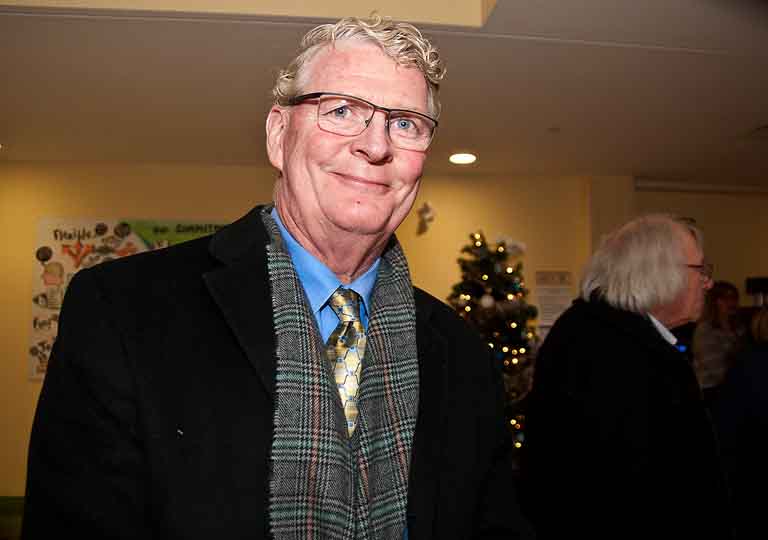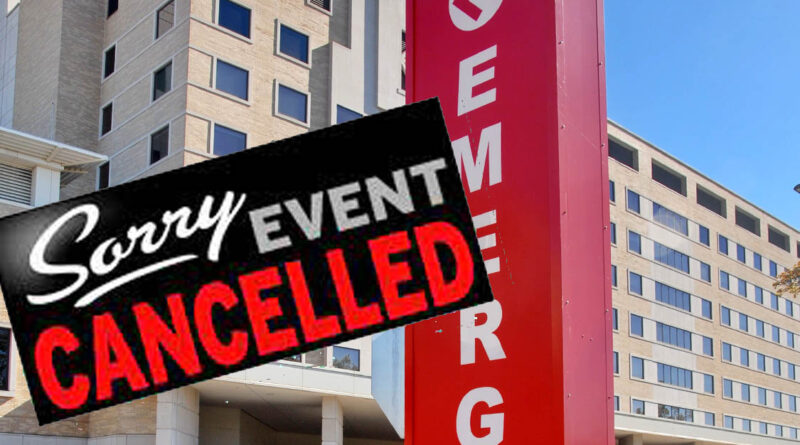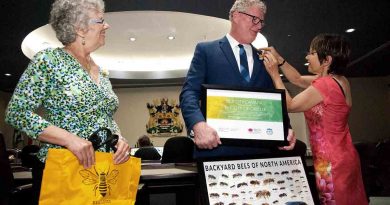State Of Emergency Cancelled
By John Swartz
March 1, the City of Orillia is terminating the local state of emergency, in step with the province dropping several regulations relating to the pandemic – despite some anxiety people have about returning to a semblance of normal is happening too soon.
“It probably would not have hurt (to wait), but on the other side of that question is would it have been necessary to hold off for another couple of weeks. We had that discussion at two or three different meetings and in the end we decided there really wasn’t any significant advantage to delaying it and so we decided to do it coincident with the province rolling back their measures. All along we’ve been following the province, the health unit and the science behind it,” said Mayor Steve Clarke. City staff consulted with the Simcoe/Muskoka District Health Unit before deciding to pull the plug.
![]()



![]()
“There was communication. Our understanding was Dr. Gardiner thought maybe the province was moving too fast, but didn’t believe it was necessary for him to bring in any additional restrictions in Simcoe/Muskoka if the trajectory was maintained and I believe it was,” Clarke said.
The most noticeable effect of ending the emergency will be for those using City facilities. Proof of vaccination will no longer be required to use recreation and cultural facilities. Also on March 1 the province is dropping capacity limits for indoor facilities and proof of vaccination to enter. Masks are still required to be worn for at least another two weeks.
While some requirements are being dropped, there is nothing stopping businesses from still asking for proof of vaccination or limiting how many people can be inside their stores.
This doesn’t mean the barn door is wide open, for the time being the City will still be screening people on entry.

“We’re still waiting for a definition from the health unit; I think they were talking about maybe continuing to screen. Until we get a definition of what they are talking about we actually are going to keep our people inside the front doors and screen people when they come in,” said Clarke.
Clarke said the main reason for ending the emergency now is Orillia’s high rate (87%) of vaccination.
“The only reason we could even contemplate an easing of restrictions and ending the declaration and all those things that are related to coming out on the other side of the pandemic is because of a high vaccination rate in the community. If it wasn’t for that we would not be able to do what we are doing.”
“As long as we’ve got the vaccinations and boosters, then we’re going to have pretty good resistance and we should be able to keep things open. That sure as heck is the goal.”
At the Outset
It was almost two years ago, March 20, 2020, when the emergency was declared. To say anybody knew what was happening, or what to do, is exaggeration. That doesn’t mean the City didn’t have a playbook, they did, but when dealing with an attacker of unknown potential, it’s all about reviewing what you’ve done and adjusting.
“When we first declared and formed the emergency management committee and ERTF (economic recovery task force) , the ERTF was meeting every week and the EMC was meeting 7 times a week with all the department heads in the City – we want to make sure we are keeping water flowing to houses and waste water, etc. and every week we were meeting with the OPP, Soldiers’, the health unit, and the Department of National Defense at one point,” said Clarke.
“In those meetings we were able to react daily or weekly to the changing situation. Sometimes it was, how are we going to follow the province’s guidelines, or mandates, and the health unit’s? We were working with the OPP and the health unit on enforcement measures. We would make recommendations to council, such as, at one point we were not happy where the province was at one point, in the first winter, with restrictions on big box stores, so we brought in our own. We had that ability to do that under the declaration of emergency,”
Though the province was responsible for implementing virtually all the restrictions people had to deal with, it was the City that had the bulk of the work and responsibility to carry those out. The declaration of the emergency gave the City some tools they otherwise didn’t have to do so .
The emergency management team (Clarke, the CAO, fire chief and the manager of communications) were the top of the organization chart for the emergency. Next in importance was the ERTF chaired by councillor Ted Emond, which was created early on when there was no indication how the province or federal government would keep the country financially afloat.
The first act of the ERTF was to recommend council create a $1 million emergency fund. That money was used to pay for creating the pedestrian mall on Mississaga Street, covering marketing and operational expense for two summers. There was also money forwarded to The Lighthouse in the early stages, but without having figures at hand, Emond estimated it was around $25,000.
“We also made decisions and made recommendations to council on the waterfront parking programs the last couple of summers; even downtown parking, whether to stop charging or when to start charging; transit was free for quite a while,” said Clarke.
In total a little more than about $100,000 of the fund was used.
However, Emond said at budget council approved earmarking $500,000 of the emergency reserve for creating an Innovation Hub. The hub has not been actually created and no money spent so far.
There were other expenses the City had.
“We had a lot of costs we wouldn’t normally have had and so the EMC had to approve those coming out of a certain reserve, our hope would be we get those costs back from the province. We spent a lot of money trying to keep the City running and keep the City safe during the pandemic,” Clarke said.
“Unfortunately we had to lay employees off, so that was an interesting process and took up a lot of discussion time. It was unfortunate, but staff have been great through this because sometimes they wouldn’t know from week to week if they were coming in to City Hall, or if they were going to be working.”
In reality, the City’s declaration made more work for City staff, particularly those in management, who had to add dealing with regulations, staffing, making sure normal operations continued, and how to manipulate their budgets to keep running – or ask for more money. For most of the emergency period, they also had to do those things working remotely. It will probably be a relief the extra work will soon be over with.
(Photos by Swartz – SUNonline/Orillia)




